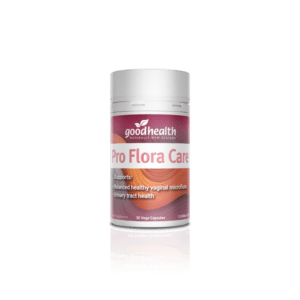
Đến giờ, tất cả chúng ta hẳn đã nghe đến những từ như "vi khuẩn đường ruột" hay "vi khuẩn đường ruột" và mối liên hệ của chúng với sức khỏe của chúng ta. Chúng ta biết rằng chúng ta có vi khuẩn đường ruột, nhưng bạn có biết rằng chúng ta cũng có vi khuẩn đường âm đạo không? Trên thực tế, cơ thể chúng ta là nơi cư trú của nhiều vi khuẩn hơn cả các tế bào của chính chúng ta và mặc dù vi khuẩn đường ruột của chúng ta có thể thay đổi và được chia sẻ, nhưng nó là duy nhất đối với chúng ta. Nếu mọi thứ trở nên tồi tệ với vi khuẩn đường âm đạo của chúng ta, điều này đã được chứng minh là gây ra các vấn đề về sức khỏe sinh sản và tiết niệu sinh dục VÀ sức khỏe tổng thể của chúng ta. Vi khuẩn đường âm đạo hoặc đường ruột mất cân bằng không phải là nguyên nhân duy nhất gây ra các vấn đề ở đó, nhưng nếu sự cân bằng vi khuẩn của chúng ta bị mất cân bằng, hệ thống miễn dịch có thể bị ảnh hưởng và các vấn đề có thể xảy ra.

Hãy nói về hệ vi sinh vật âm đạo
Trong giới khoa học sức khỏe, hệ vi sinh vật dùng để chỉ các sinh vật, các sản phẩm trao đổi chất của hoạt động của chúng, cấu trúc và môi trường của chúng, và nói chung là các vi khuẩn trong và trên toàn bộ cơ thể chúng ta. Thuật ngữ hệ vi sinh vật dùng để chỉ sự pha trộn di truyền của tất cả các sinh vật sống (vi khuẩn, vi-rút, nấm, v.v.) trong một khu vực nhất định, ví dụ như ruột, âm đạo hoặc miệng. Hệ vi sinh vật âm đạo, độc đáo đối với mỗi người chúng ta, giao tiếp với nhau, với các khu vực khác của hệ vi sinh vật trong cơ thể chúng ta và với các tế bào của chúng ta. Nó có xu hướng không thay đổi quá nhiều trong suốt chu kỳ hàng tháng của chúng ta trừ khi chúng ta trở nên không khỏe mạnh hoặc thay đổi hoàn toàn các yếu tố đầu vào của mình - chế độ ăn uống, môi trường sống, tiếp xúc thân mật, căng thẳng, vệ sinh hoặc tiền mãn kinh và sau mãn kinh. Hệ vi sinh vật âm đạo khỏe mạnh nhất khi nó có tính đa dạng tương đối thấp và được chi phối bởi một số lượng lớn Vi khuẩn Lactobacillus giống loài.
Tại sao hệ vi khuẩn âm đạo cân bằng lại quan trọng đối với sức khỏe?
Hệ vi khuẩn âm đạo khỏe mạnh hỗ trợ chức năng miễn dịch của phụ nữ trong đường tiết niệu sinh dục. Nó hoạt động như một rào cản cho thành âm đạo thông qua số lượng lớn các vi khuẩn có lợi và bằng cách kích thích sản xuất chất nhầy bảo vệ âm đạo. Nó sản xuất axit lactic và các chất phòng vệ khác để ngăn chặn sự phát triển của các vi khuẩn có hại. nhưng khả năng của nhiều loài và chủng khác cùng chung sống và hoạt động cùng nhau là rất quan trọng. Khi các vi khuẩn hoặc nấm có vấn đề khác bắt đầu chiếm ưu thế, và/hoặc lượng vi khuẩn lactobacilli có lợi giảm đi, chúng ta có thể gặp phải một số hậu quả rất khó chịu.
Số lượng các kết quả rất khó chịu…
Hệ vi sinh vật âm đạo bị thay đổi có liên quan đến sự phát triển quá mức của vi khuẩn hoặc nấm men và các vấn đề về đường tiết niệu, miễn dịch sinh sản và khả năng sinh sản. Những điều này có thể không được chú ý ở một số phụ nữ hoặc gây ngứa, kích ứng, khó chịu và/hoặc khí hư âm đạo khó chịu.
Tại sao hệ vi khuẩn âm đạo có thể mất cân bằng?
Do khoảng cách tương đối ngắn giữa hậu môn và âm đạo, nên các vi khuẩn có khả năng gây hại từ ruột dễ dàng di chuyển hơn, gây mất cân bằng ở đường tiết niệu và âm đạo. Điều này có thể xảy ra ngay cả khi một vi khuẩn di cư có hại là một phần của hệ vi sinh vật ổn định và cân bằng trong ruột kết. Ngoài ra, âm đạo có thể tiếp xúc với các vi khuẩn lạ thông qua quan hệ tình dục hoặc khi vệ sinh không đủ. Sử dụng quá nhiều các sản phẩm vệ sinh có mùi thơm hoặc giàu hóa chất có thể làm mất cân bằng hệ vi sinh vật, cũng như việc sử dụng thuốc kháng sinh—nhiều người trong chúng ta đã bị nấm men phát triển quá mức sau khi dùng chúng!
Sức khỏe của hệ vi sinh đường ruột có thể ảnh hưởng đến hệ vi sinh âm đạo. Các nghiên cứu đã chỉ ra rằng thuốc trừ sâu như glyphosate có thể ảnh hưởng xấu đến các loài vi khuẩn chính trong ruột với các tác động lan tỏa khắp cơ thể. Ngoài ra, việc tiêu thụ đường tinh luyện và chất tạo ngọt có thể làm mất cân bằng hệ vi khuẩn trong miệng, ruột và đường tiết niệu. Căng thẳng và thiếu ánh sáng mặt trời thích hợp cũng có thể phá vỡ eubiosis (hệ vi sinh cân bằng). Sự gia tăng estrogen, đặc biệt là trong các tình huống như mang thai, khi estrogen tăng cao trong thời gian dài hơn, có thể thúc đẩy sản xuất glycogen, một nguồn thức ăn cho nấm men. Glycogen là cần thiết, nhưng khi hệ vi sinh đã mất cân bằng một chút…
Điều gì giúp ích cho hệ vi sinh vật âm đạo của chúng ta?
Bất cứ thứ gì giúp ích cho hệ vi sinh vật toàn thân của bạn sẽ hỗ trợ hệ vi sinh vật âm đạo. Ăn đúng loại thực phẩm—thực phẩm từ động vật và chất béo cũng như collagen của chúng, với thực phẩm lên men và thực phẩm từ thực vật mà bạn thích—là một khởi đầu tốt. Tập thể dục với lượng vừa phải giúp cân bằng hệ vi sinh vật và hỗ trợ hệ vi sinh vật. Tiếp xúc với ánh sáng mặt trời và hòa mình vào thiên nhiên hỗ trợ cân bằng hệ vi sinh vật. Ngay cả việc chia sẻ vi khuẩn với động vật của chúng ta cũng có thể giúp ích. Làm vườn và làm bẩn một chút cũng có ích. Thay vì cố gắng tiêu diệt vi khuẩn, chúng ta cần học cách sống hòa hợp với chúng, do đó, thái độ chống vi khuẩn ít hơn và thái độ sống và để cho chúng sống nhiều hơn có thể là cần thiết.
Liệu men vi sinh đường uống có thể hỗ trợ sức khỏe âm đạo không?
Các nghiên cứu hiện đang được thực hiện về cách các chủng vi khuẩn có lợi cụ thể có thể hỗ trợ sức khỏe âm đạo thông qua đường ruột. Vi khuẩn probiotic có thể hỗ trợ hệ vi sinh cân bằng trong ruột và đường tiết niệu sinh dục bằng cách cung cấp các đơn vị hình thành khuẩn lạc đã được nghiên cứu kỹ lưỡng Vi khuẩn Lactobacillus các chủng vi khuẩn đã được chứng minh là di chuyển từ ruột đến âm đạo.
Giới thiệu: Chăm sóc thực vật Good Health Pro
Chăm sóc thực vật Good Health Pro là một công thức được nghiên cứu khoa học gồm 5 chủng men vi sinh để hỗ trợ phản ứng miễn dịch khỏe mạnh trong hệ thống tiết niệu sinh dục của phụ nữ. Một hệ vi sinh vật âm đạo ổn định về mặt sinh thái thường được xác định bằng mức độ cao của các loài Lactobacillus. Các chủng Lactobacillus đóng vai trò quan trọng trong việc hỗ trợ các vấn đề về chức năng và miễn dịch ở bộ phận sinh dục bằng cách hỗ trợ độ pH âm đạo và cân bằng vi khuẩn thông qua đầu ra sau sinh của chúng, khiến môi trường trở nên không thích hợp cho một số vi sinh vật có hại và bằng cách cạnh tranh với các vi khuẩn khác.
Đơn vị hình thành khuẩn lạc (CFU) ước tính số lượng tế bào vi khuẩn sống có khả năng sinh sôi và xâm chiếm mô thích hợp. Pro Flora Care chứa ít nhất 12 tỷ CFU tổng số các chủng Lactobacillus được nghiên cứu sâu rộng: L. rhamnosus GR- hỗ trợ hệ vi khuẩn âm đạo cân bằng và toàn vẹn niêm mạc ruột; reuteri RC-14 hỗ trợ phản ứng miễn dịch khỏe mạnh và cân bằng nấm men/hệ vi khuẩn; gasseri LG-G12 hỗ trợ độ pH âm đạo và đẩy lùi vi khuẩn có hại; acidophilus LA-G80 cường độ cao hỗ trợ sức khỏe sinh sản và tiêu hóa của phụ nữ, cộng với sự cân bằng vi khuẩn trong đường âm đạo và đường tiết niệu; và crispatus LC-G22 hỗ trợ hệ vi khuẩn ổn định. 5 chủng này đã được phát hiện là đặc hiệu cho hệ thống tiết niệu sinh dục của phụ nữ, hỗ trợ đẩy lùi vi khuẩn "xấu" và cân bằng hệ vi khuẩn âm đạo.

Good Health Pro Flora Care được thiết kế để hỗ trợ hệ vi sinh âm đạo khỏe mạnh và cân bằng độ pH trong suốt chu kỳ kinh nguyệt, đồng thời hỗ trợ sức khỏe sinh sản, tiêu hóa và sức khỏe tổng thể.
Pro Flora Care hỗ trợ:
- Độ pH âm đạo cân bằng
- Hệ vi khuẩn âm đạo khỏe mạnh và cân bằng nấm men
- Sức khỏe đường tiết niệu
- Các khuẩn lạc vi khuẩn có lợi
- Khả năng sinh sản khỏe mạnh
- Sức khỏe sinh sản, đường ruột và tổng thể
Nếu bạn lo lắng về bất kỳ vấn đề nào liên quan đến sức khỏe âm đạo của mình, vui lòng đến gặp bác sĩ gia đình hoặc trao đổi với chuyên gia sức khỏe để được tư vấn chế độ ăn uống, lối sống và thực phẩm bổ sung phù hợp với bạn.
Để biết thông tin chi tiết về sức khỏe phụ nữ, vui lòng xem các bài viết trong Chuỗi bài viết về sức khỏe phụ nữ:
Trí tuệ tổ tiên cho sức khỏe nội tiết tố nữ, Phần 1
Trí tuệ tổ tiên cho sức khỏe nội tiết tố nữ, Phần 2
3M và chu kỳ nội tiết tố nữ, Phần 1 – Tuổi dậy thì
3Ms và Chu kỳ nội tiết tố nữ, Phần 2 – Kinh nguyệt
3Ms và Chu kỳ nội tiết tố nữ, Phần 3 – Mãn kinh
Số phê duyệt của TAPS: PP2949


